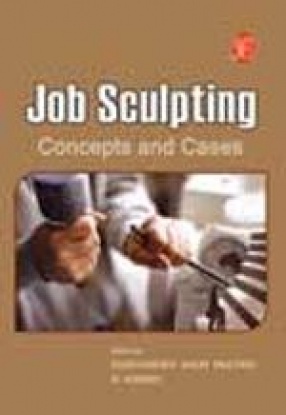Job Sculpting has been defined as the art of matching people to jobs to realize and identify their "deeply embedded life interests" that match their job profile. It is a highly useful tool to slow down employee attrition, which is a major problem faced by the organizations. The employee motivation is an issue that needs to be addressed on a priority, since it is the demotivated employees who are more prone to leave the company. The commitment and loyalty of the employees are diminishing in the present competitive world and hence, in such a situation, it becomes vital for the Human Resource managers to frame and implement suitable policies that can motivate employees. The employee retention is another key issue taken up in this book as the present global world is facing the problem of high cost of turnover due to high attrition rate. The implementation of effective retention strategies can bring down the attrition rate. The major factor that can retain the employees of an organization, other than money, is the work satisfaction that leads to job satisfaction. The employees who are satisfied and happy with their jobs will always produce at higher levels. This book "Job Sculpting: Concepts and Cases" has been divided into two sections. The first section is titled "Concepts" that best describes the concepts of Job Sculpting, Motivation and Retention. It stresses job sculpting as a tool in retention of employees. It further discusses the concepts of Employee Motivation and Retention. The motivated employees are less likely to leave a company and hence it will help in their retention. Thus, the two are closely related to each other. The second section is titled “Casesâ€, which discuss the retention strategies adopted by the firms like SAS and Sapient. It discusses their applicability to firms that want to lower the attrition rate.
Case Studies on Business Ethics and Corporate Governance: Promoting Social Responsibility
There is a growing awareness ...
$80.10
$89.00











There are no reviews yet.